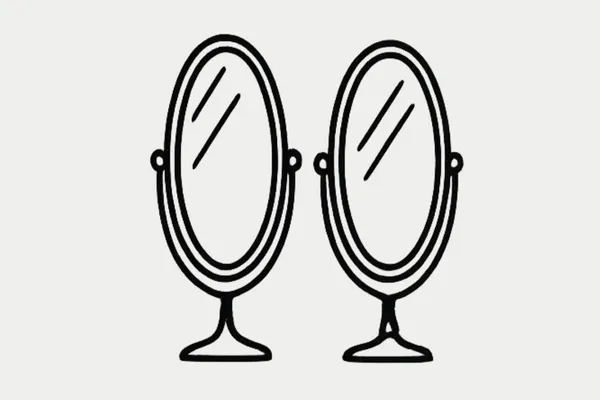
Part I: The Mirror Principle: Everyone You Meet is a Reflection of You
Have you ever noticed that certain people consistently bring out specific reactions in you, whether positive or negative? Or perhaps you find yourself drawn to particular qualities in others? What if I told you that everyone you meet is, in some way, a reflection of you?
It might sound a bit "woo-woo," but this concept, often rooted in spiritual and psychological traditions, suggests that your external world is a direct mirror of your inner world. How you view the world around you directly correlates to how you see yourself.
What You Love and Admire in Others
Let's start with the good stuff. That which you love in others, you love in yourself. When you find yourself genuinely celebrating someone else's success, talent, or kindness, it's often because you recognize and value those same qualities within yourself. What you admire in others is a reflection of what you truly value and, often, what you're cultivating within your own being. The compassion you feel for others' pain? That stems from a place where you can relate, a testament to your own capacity for empathy and understanding.
These positive reflections are beautiful affirmations of your own inner landscape. They show you where your strengths lie, what brings you joy, and what truly resonates with your spirit.
What Irritates and Rejects in Yourself
Now, for the tougher part of the mirror. What happens when someone grates on your nerves, or you find yourself strongly rejecting certain behaviors or traits in others? Often, what irritates you is what you haven't fully accepted in yourself. What you reject or disdain in someone else is usually something you haven't yet embraced, understood, or integrated within your own psyche.
Think about it: if someone's impatience triggers a strong reaction in you, could it be that you're wrestling with your own impatience, or perhaps a part of you that feels rushed or out of control? Similarly, jealousy shows you what you desire but might not believe you can have. And perceived rivals? They often point to untapped potentials or desires within you that are waiting to be recognized and developed.
Keys to Self-Acceptance and Understanding
All of these emotional reactions, whether positive or challenging, are more than just fleeting feelings. They are triggers—powerful keys to unlocking greater self-acceptance and understanding. The way we relate to others truly mirrors how we relate to ourselves.
By consciously observing these reflections, we're given an incredible opportunity. Instead of getting caught up in judgment or blame, we can turn inward. We can ask ourselves: "What is this interaction showing me about myself?" or "What part of me is being highlighted here?"
This isn't always easy, especially when those "mirror moments" catch us off guard and the emotional responses feel intense. But understanding these moments is the first crucial step to navigating them with awareness and intention. By polishing our inner mirror, we begin to transform the way we experience the entire world.
Next, we'll explore exactly how these triggers work, diving into the role of our nervous system and how these seemingly negative moments actually hold the potential for deep personal transformation when we approach them as healing opportunities.